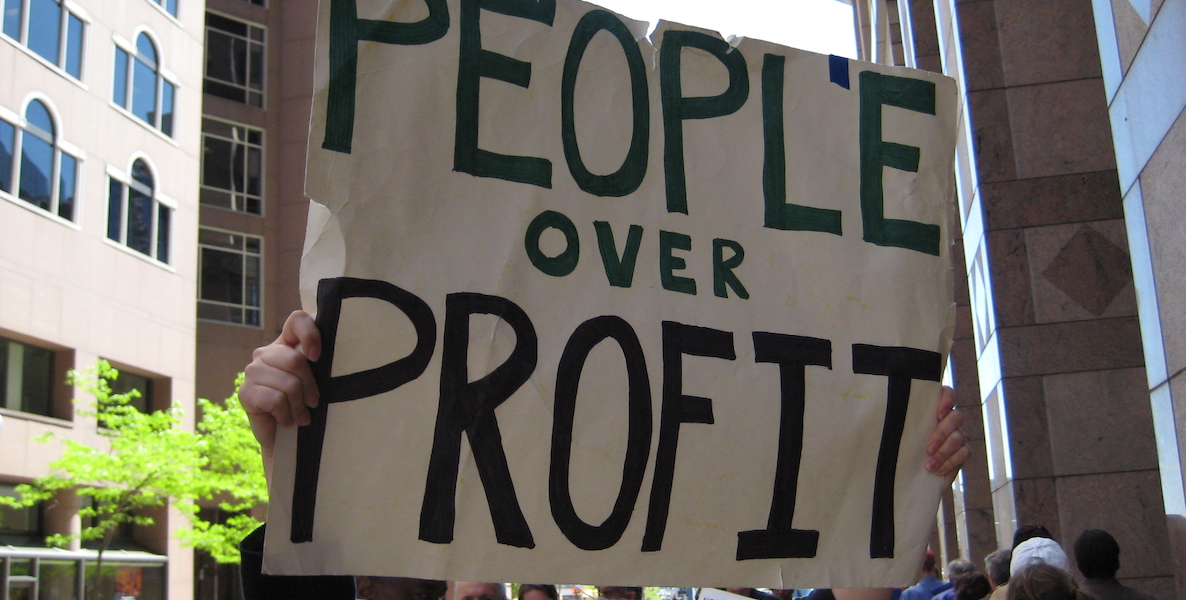In an announcement last Monday, the Business Roundtable added their voice to a steady drumbeat of important market signals stating the need to move away from the failed ideology of shareholder primacy toward a new culture of shared prosperity. It’s a significant sign of our shifting culture that the country’s largest corporations and the organization representing their interests are revising their definition of the purpose of the corporation from profit maximization to leading their companies “for the benefit of all stakeholders—customers, employees, suppliers, communities and shareholders.”
The B Corp movement is now comprised of over 10,000 Certified B Corps and benefit corporations across 150 industries and 60 countries, all of which represent the kind of action needed to put credible weight behind any public commitment to upend shareholder primacy and shift the cultural narrative of business in society.
Ensuring that our capitalist system is designed to create a shared and durable prosperity for all requires this culture shift. But it also requires corporations, and the investors who own them, to go beyond words and take action to upend the self-defeating doctrine of shareholder primacy. They can do this by making themselves legally accountable to create value for their workers, customers, suppliers, and communities—not just talk about it.
To the cofounders of the B Corporation movement, this view of the role of business in society isn’t new. We created the B Corp certification to identify business leaders who demonstrate that their companies deliver value to all of their stakeholders, not just their shareholders—to maximize value, not just profits. Then we realized that we needed to go further to address the doctrine of shareholder primacy by passing benefit corporation legislation in 37 U.S. jurisdictions, including Delaware, that allows corporations to make themselves legally accountable to create value for their stakeholders. The B Corp movement is now comprised of over 10,000 Certified B Corps and benefit corporations combined across 150 industries and 60 countries, all of which represent the kind of action needed to put credible weight behind any public commitment to upend shareholder primacy and shift the cultural narrative of business in society.
B Corp founders on the company modelVideo
The good news is that new structures and tools exist to help the members of the Business Roundtable turn their principles into practice. It is imperative that they do this rapidly because, as others like Blackrock CEO Larry Fink have said, not only is there a strong business case to adopt this long-term stakeholder orientation, but if businesses and investors do not demonstrate material progress in this direction, they risk more than losing the public trust—they risk losing their license to operate.
So here are three opportunities to ensure that the ideas raised by the Business Roundtable and capital markets leaders like Larry Fink become actions that benefit us all:
Corporate Governance Shift
The CEOs who signed the Business Roundtable letter have an opportunity to walk the walk by shifting to stakeholder governance, making their companies legally accountable to balance the interests of their shareholders with those of their Support Philly B CorpsDo Something
Capital Markets Endorsement
To create an economic environment that favors long-termism, the capital markets need to shift from over-valuing the short term. Asset managers like Larry Fink and the long-term asset owners who give him capital to manage can support the CEOs who want to adopt stakeholder governance by stating their endorsement for it. This connection appears lost on the Council of Institutional Investors, which released a critical response to the Business Roundtable announcement, raising an outdated red herring that stakeholder governance will lead to a lack of management accountability. In fact, numerous studies show that good stakeholder environmental, social, and governance practices are just better governance for long-term investors and their beneficiaries.
Public Policy Acceleration
Policy makers across the ideological spectrum—from Mike Pence to Marco Rubio to Elizabeth Warren—have identified shareholder primacy as an obstacle to high-quality jobs and shared prosperity. There is an opportunity for a bipartisan policy consensus to enable companies and investors to make this culture shift translate into meaningful and lasting behavior change that benefits workers, communities, the environment, and shareholders. This might include corporate or investor tax incentives and procurement preferences for stakeholder-governed companies, as well as investor fiduciary duty reforms to enable investment managers to focus on responsible long-term stewardship of their portfolios using stakeholder governance, and/or guardrails to ensure that companies and investment portfolios are governed to avoid negative externalities and create value for society.
People want to buy from, work for, and invest in companies that serve a higher purpose than maximizing profit at any cost to people, communities, and the natural world on which all life depends.
An increasing number of publicly traded companies are looking for ways to break out of the box they’re put in by short-term shareholder primacy. These companies recognize that there is both safety and power in collective action. Like the CEOs of the Business Roundtable, they understand that they need investor support to lead for the long term, to manage with stakeholder governance, and to measure and value more than pure financials. We believe that the Business Roundtable’s announcement has just created a bigger opportunity for all companies to follow the pioneers that have already adopted stakeholder governance. Alongside other partners, we are excited to support CEOs in a “coalition of the leading” to engage with long-term investors and policy makers to adopt credible stakeholder governance structures like the benefit corporation that ensure these companies can create high-quality jobs, rebuild local communities, and restore natural ecosystems in the U.S.
Business for Good articles on The CitizenRead More
Jay Coen Gilbert, Andrew Kassoy, and Bart Houlahan are the cofounders of the B Corporation movement. A version of this story first appeared in Fast Company.









